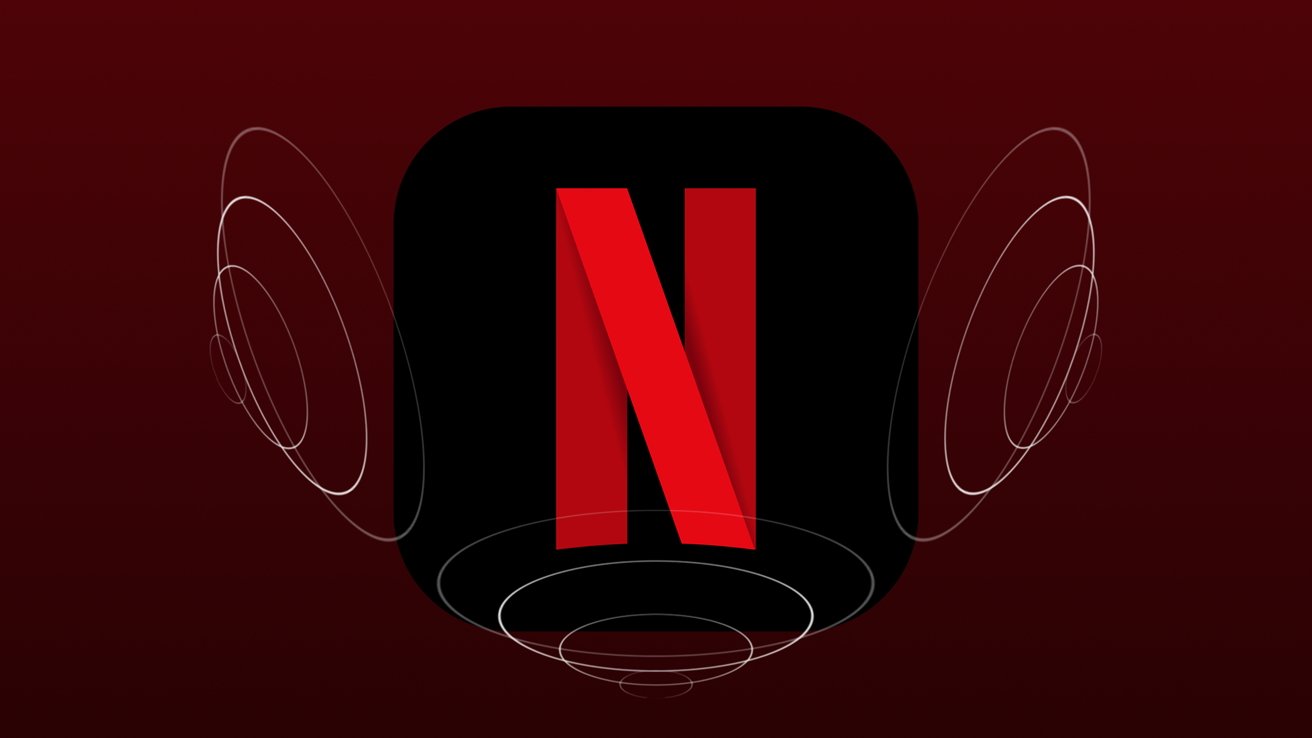Netflix bringing spatial audio to 700 titles for Premium subscribers
Spatial audio on Netflix, not to be confused with Apple’s audio feature, has been added to over 700 titles for Premium subscribers.
Netflix is rolling out spatial audio to hundreds of titles for users listening on devices with only two speakers, like TVs, laptops, and headphones. This doesn’t apply to users with advanced home theater setups that support Dolby 5.1 or Dolby Atmos.
The “immersive cinematic sound experience” created by this spatial audio feature is expected to draw more Premium subscribers — that’s Netflix’s $20 per month plan. It creates a wider soundstage on stereo speaker setups to emulate surround sound.
Netflix collaborated with Sennheiser to convert surround sound mixes into spatial audio files that can be played through stereo speakers or headphones, which should be more immersive than standard stereo files. It initially rolled out the feature in July 2022 for Stranger Things but is now making it available to more titles.
This feature isn’t to be confused with Apple’s also-named Spatial Audio. Apple’s version is also an audio feature, but it is actively processing incoming audio to create a 3D environment regardless of the number of speakers in use.
Netflix already supports Apple’s Spatial Audio on any device with the feature. Basically, that’s any modern iPhone, iPad, or Apple TV with operating system version 15.1 or later installed.
Apple’s Spatial Audio uses information from Dolby Atmos, Dolby Surround, or stereo tracks to place audio around the user to the best of its ability. Atmos files provide the most data for this emulation and create the most fidelity. The technology also takes advantage of things like gyroscopes to let the user move through the audio.
Netflix, however, is supplying the user with a different audio encoding and calling it spatial audio. This new encoding doesn’t rely on the output device or any algorithms to produce a wider soundstage. Instead, the audio file is providing different production instructions to the speakers to spread out sound more.
This is why the YouTube video embedded in the Netflix blog can provide a demonstration of the feature. This isn’t some proprietary technology found only in the Netflix app, it is just an updated sound file set being added to its titles.
Apple’s Spatial Audio feature will be able to take advantage of Netflix’s new spatial audio files, however, if a more advanced audio file is available in the Netflix title, like Atmos, it will default to that instead.

